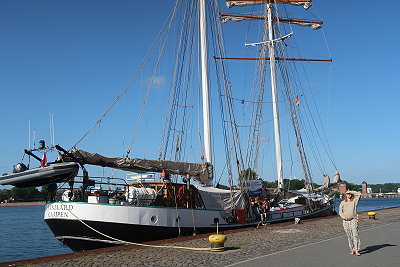 Small-scale fisheries employ more than 90% of all men and women active in different parts of the value chain of around the globe. Some 40 million in the catching sector alone and many more in pre- and postharvest jobs. The Food and Agriculture Organization of the United Nations (FAO) estimates that approximately half are women. The vast majority, about 85%, lives and works in Asia, 9% in Africa, 3% in Latin America and only 1% in Oceania, Europe and North America respectively (1).
Small-scale fisheries employ more than 90% of all men and women active in different parts of the value chain of around the globe. Some 40 million in the catching sector alone and many more in pre- and postharvest jobs. The Food and Agriculture Organization of the United Nations (FAO) estimates that approximately half are women. The vast majority, about 85%, lives and works in Asia, 9% in Africa, 3% in Latin America and only 1% in Oceania, Europe and North America respectively (1).
The high-quality products of artisanal fishers are predominantly for direct human consumption and also make a particularly important contribution to the food and nutrition security of less privileged people in Asia, Africa and Latin America. But highly subsidized industrial long-distance fleets, especially those from wealthier countries, are catching the fish right under their noses, often illegally.
That is why the Ocean Philosophers in Kiel had invited me, Cornelia E Nauen of Mundus maris, as a resource person to talk about conditions of small-scale fishers, particularly in Africa. They wanted to discuss what they and others can do together to overcome this untenable situation for the better and to help implement internationally agreed goals about stopping overfishing and using the ocean's biodiversity in sustainable ways.
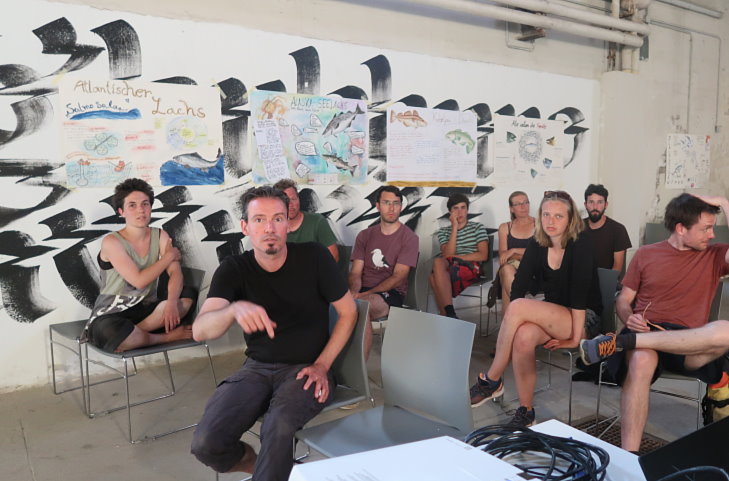
They had organised a sailing week for some 25 people who had familiarised themselves during the trip with the principal fish species of the Baltic and drawn up informative posters on each one. Back at the quai on Friday, 16 July, they could gain easy access to more information by tapping into the global information system on all fish at www.fishbase.org and they wanted to learn a bit more about the fisheries.
That tied in well with my own studies and reminded me about some contacts I had developed in the 1980s with the artisanal fishers "of the Holm" in Schleswig, when I was already working at the FAO and was asked to contribute to a technical report on coastal fisheries around the world. The Holm fishers were indeed particularly noteworthy as their tightly knit community had just been celebrating 500 years of their existence and struggle to defend their livelihoods first against transgressions by feudal lords and later industrial pollution. Their strength had been solidarity and collective action that carried them through the centuries. The inspiring exchange and mutual learning with them never left me since in my reflections about the professions and their roles in marine traditions, stewardship and provision of goods and services.
What about the lives of men and women in small-scale fisheries for example in Senegal? A few pictures visualised their tough living conditions, hard to imagine from the comfort of a modern infrastructure in northern Germany, even when one tries to chose as energy efficient and nature-respecting a livestyle as possible.
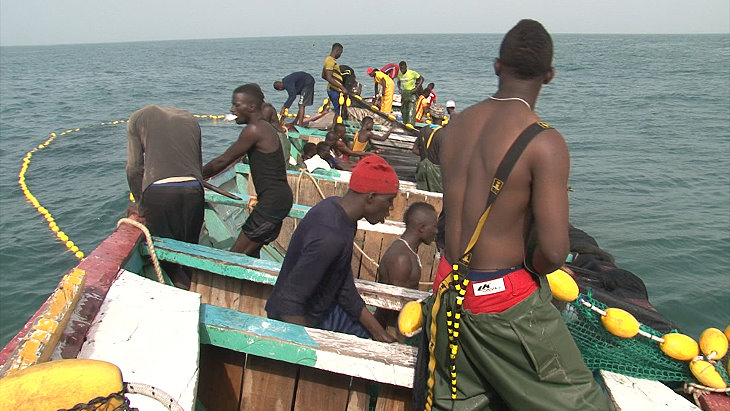
The artisanal fishers there suffer a lot from the direct competition by industrial trawlers, many from abroad and highly subsidised, and with catching capacities per day that exceed manyfold those of the artisans. As a result, the locals are forced to go further out and on longer trips, which need much higher investments. This leads to a vicious cycle, which has already reduced their earnings very significantly over the years.
Few of the women who used to prefinance the fishing trips and therefore got priviledged access to the landed catches for processing and marketing can keep up. They don't get access to bank credit and thus not only see their income shrinking, but also their influence and status. That has unfavourable effects on the food security, health and schooling of the children and other family members.
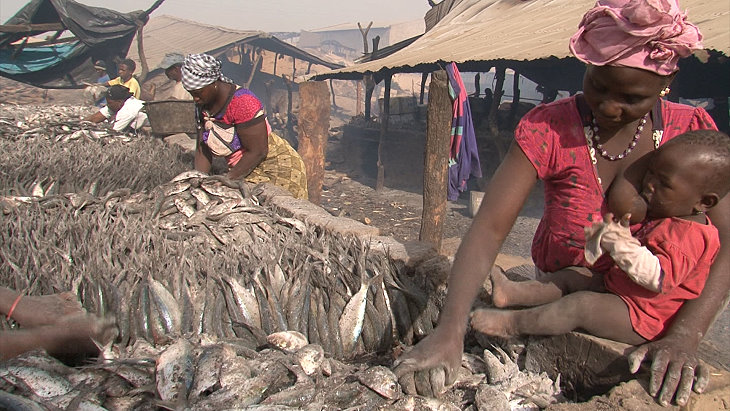
Listening to their voices and documenting their concerns, Mundus maris is an active member of several campaign alliances by civil society organisations to address the structural problems preventing marine protection and equitable use conditions. One particularly important campaign is to stop harmful fisheries subsidies through new disciplines in the World Trade Organization (WTO). Negotiations have been going on since 20 years, but WTO member states failed to meet the 2020 deadline set in the globally agreed Sustainable Development Goal (SDG) 14, target 6. With Dr. Ngozi Okonjo-Iweala of Nigeria taking the helm of the WTO on 1 March 2021, the negotiations are edging closer to a conclusion. Economists have estimated that half the long-distance fleet would be economically unviable without the massive subsidies of USD 22 billion per year. Getting rid of this overcapacity would already go a big step in the direction of preventing tax payers funding overfishing and improving living conditions for the artisans. That would be a boon to the many low-income people relying on access to their affordable products for a balanced diet.
In the conversation over these distortions, we discussed other complementary measures, such as at least reducing or altogether phasing out transhipment at sea. This involves moving catches out of view of fisheries port authorities, coastguard and surveillance onto refrigerated reefer vessels at sea. One of the effects is that illegally caught fish gets mixed with legitimate catches and contaminates the global supply chains that constitute the backbone of the biggest buyers markets in Europe, Japan, China and the USA. These dubious or outright illegal practices extend also into providing fishing vessels with bunker oil and supplies, even crew, so that they do not touch land for months on end. Needless to say that international organised crime has discovered such practices are a useful smoke screen for all kinds of other criminal activities, from massive bribery and fiscal fraud to arms and drug running and human trafficking. This must stop as even well-equipped coast guards and satellite surveillance can not prevent such practices. More and better international cooperation could in the mearntime make life more difficult for the criminals.
So, what else to do?
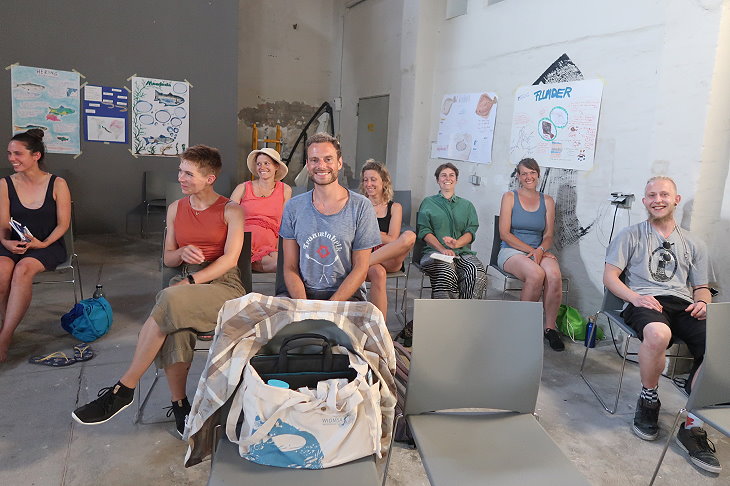
We spent the rest of the workshop discussing how the Small-Scale Fisheries Academy in Senegal is showing ways of how to strengthen the capabilities of the fishers themselves. Sure, it is important, even indispensible, to raise awareness and engagement on these often global policy issues. But it is equally important that the people in coastal fisheries, resource persons able to bring specific additional expertise to the table, local administrations, scientists and ordinary citizens look for solutions to the current ills. Nobody else can do it for them. And they can do something effective, particularly when working together. We looked at the example of Nabia N'Gom, a micro-fish seller in Yoff, Senegal who rose from a nobody in her community to become a "go to person" as a result of making good use of the training actively followed in the Academy. As they say, every (change) journey starts with the first step - and with one person gaining followers and collaborators. Many people on the road can achieve a lot. The participants had made similar experiences in other contexts and could enrich the exchange with additional examples.
Great way to get ready for action!
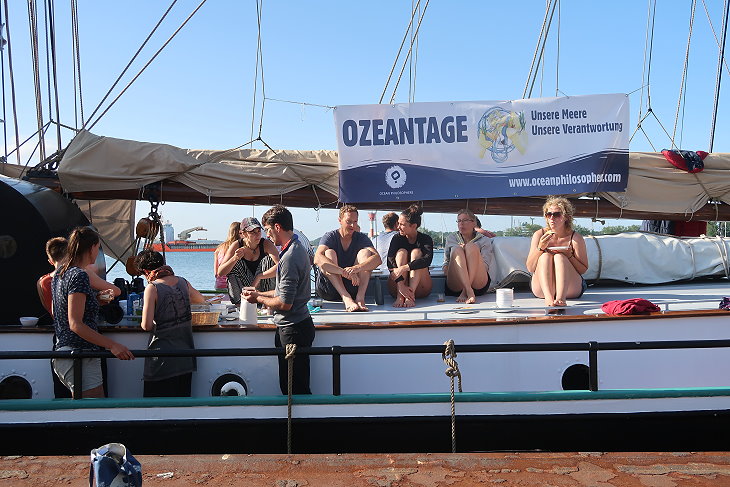
Today's small-scale fishers in the Baltic are fewer and struggle with a host of additional challenges, including massive algal blooms from overfertilisation of the largely industrial agriculture on land which provokes expansion of "dead zones" without oxygen in the shallow and semi-enclosed Baltic. Fish kills occur more often and cod in the Western Baltic has become a rarety, while crabs which are part of cod food are abundant.
Oliver Egerland, a coastal fisher using only passive gear in nearshore waters, shared insights from his working environment. He complained bitterly about the degradation of the natural environment and many obstacles stacked up against his future and that of the profession. He noted that he and the few remaining full-time artisanal fishers also suffer badly from competition and further habitat destruction through the trawlers, but also lax enforcement of restrictions on part-time fishers operating on the same fishing grounds and selling their catch along side the professionals without having the same expenses as the full timers. He could only earn just enough because he was selling directly to restaurants or consumers at the pier, but much of that had not been possible during the covid pandemic when collaboration with researchers about potential resource recovery strategies earned him a little extra to get by.
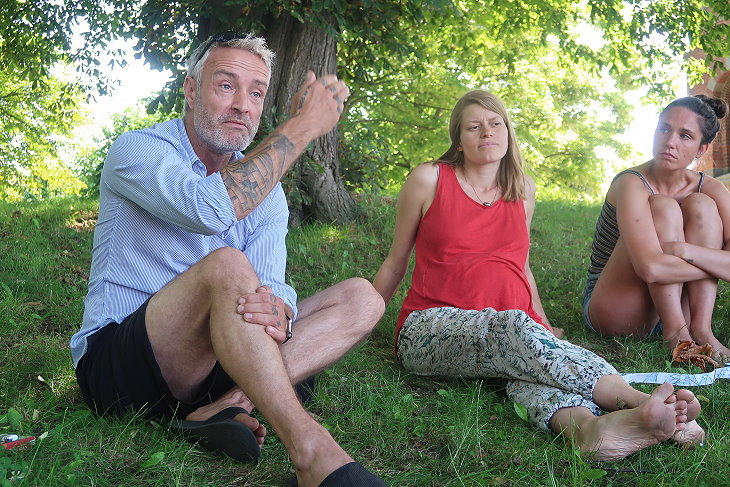
It's a complicated mix with no simple solution. The discussion led to the view that it would be good to raise greater awareness among citizens but also seek dialogue formats to look for viable next steps out of the misery. Oliver would like the politicians to pay greater attention to the untenable situation. But he could also see the benefit of getting more support from civil society organisations to promote change towards rebuilding a healthy ecosystem in the Baltic that provides for livelihoods for small-scale fishers. He certainly does not want to be seen as part of the problem, but rather as part of the solution. But even within the profession, short-term interests can get the overhand over what's good for people and nature in the medium to long run.
There is work to be done, including for organisations like Ocean Philosophers and Mundus maris, to develop support formats of cooperation which enable better mutual understanding of working conditions and developing a shared vision for healthier futures. Then it's easier to organise joint or complementary activities to achieve the necessary change. Will all necessary parties be willing to build on some existing but fragile cooperation, to make this renewed effort and sustain it over time? At the moment it seems an open question. The badly degraded situation calls, however, for a serious joint initiative that opens up renewed opportunities also for coastal fishers. Their use of passive gear and much less fuel compared to trawlers make them prime candidates for fisheries that comply with the urgency of climate change mitigation and adaptation.
Text and pictures (except the two images from the film "Golden fish, African fish") by Cornelia E Nauen. This is part of the contributions to the Ocean Summit in Kiel and Schleswig Holstein, Northern Germany. The Ocean Summit was initiated as a festival concept by the Heinrich Böll Foundation Schleswig Holstein and has been extended into a continuous collaboration of dozens of cultural, scientific and civil society organisations with activities throughout the year.
(1) FAO, 2020. The State of World Fisheries and Aquaculture 2021. Rome, Food and Agriculture Organization of the United Nations.








